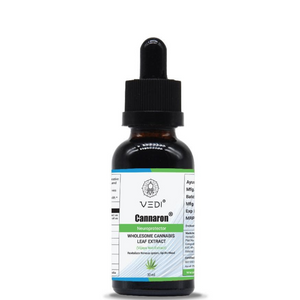Male Infertility Treatment In Ayurveda: A Comprehensive Guide

Male infertility is an issue that affects many couples across the globe. It’s defined as the inability of a man to contribute to conception after a year of regular, unprotected intercourse.
Studies suggest that male infertility contributes to approximately 50% of infertility cases worldwide.
While modern science offers various treatments, Ayurveda presents a holistic approach to addressing male infertility, focusing on balancing the body, mind, and lifestyle.
In this blog post, we explore how ancient Ayurvedic practices can help manage and resolve male infertility issues naturally and effectively.
View of Ayurveda on Male Infertility
In Ayurveda, male infertility is understood through the lens of "Shukra Dhatu" – the essence responsible for reproduction. The quality and quantity of Shukra, which translates to semen, are considered vital for male fertility.
When Shukra becomes vitiated due to imbalances in the body’s doshas (Vata, Pitta, and Kapha), it can result in infertility.
Ayurveda identifies several conditions that may lead to male infertility, including "Oligoasthenozoospermia" – a condition characterized by low sperm count (oligozoospermia) and poor sperm motility (asthenozoospermia).
This is closely related to a condition in Ayurveda called "Kshina Shukra," where there is an imbalance and depletion in Shukra Dhatu, causing qualitative and quantitative issues.
Furthermore, Ayurvedic texts like the Charaka Samhita and Sushruta Samhita mention Tantra (sexual invigoration) and Vajeekarana (aphrodisiac treatments) as key strategies for treating male infertility.
The Ayurvedic system also emphasizes the importance of healthy functioning of the Shukravaha Strotas – the channel responsible for carrying nutrients to the reproductive system.
Can Ayurveda Help to Solve Male Infertility Issues?
Ayurvedic treatment for male infertility is not limited to just medicinal herbs. It includes a combination of diet, lifestyle changes, detoxification methods (like Panchakarma), and specific therapies aimed at revitalizing the reproductive system.
Below are some key Ayurvedic approaches:
1. Shamana Chikitsa (Palliative Treatment)
Ayurveda recommends dietary and lifestyle modifications to help balance the doshas and nourish the reproductive tissues. Key foods and herbs that promote fertility include:
Ahara (Dietary Recommendations):
- Shalidhanya (Rice), Godhuma (Wheat), Mamsa (Meat), Milk, Ghee, Amalaki (Indian Gooseberry), Guda-sharkara (Jaggery and Sugar), and Kharjura (Dates).
- These foods are known for their ability to nourish Shukra and boost vitality.
Vihara (Lifestyle Practices):
- Abhyanga (oil massage), Vyayama (exercise), Snana (bathing), and proper sleep.
- These practices promote overall health and support the body’s natural fertility.
Aushadha (Herbal Remedies):
- Herbs like Ashwagandha (Withania somnifera), Amalaki (Emblica officinalis), Shatavari (Asparagus racemosus), and Yashtimadhu (Glycyrrhiza glabra) are commonly used to enhance sperm quality, boost testosterone levels, and reduce oxidative stress.
2. Shodhana Chikitsa (Purification Therapy)
Virechana (Purgation Therapy):
- Virechana involves the use of purgative substances to eliminate toxins from the body.
- Removes ama (toxins) that could affect reproductive health.
- Improves overall endurance and energy levels.
Vasti (Medicated Enema):
- Vasti involves the administration of medicated decoctions or oils through the rectum.
- Helps in cleansing the colon and rejuvenating the reproductive system.
- Improves the absorption of nutrients and strengthens the body.
Uttarabasti (Specialized Therapy):
- Uttarabasti is a specific procedure where medicated decoctions are introduced into the urethra.
- Aims to cleanse and rejuvenate the male reproductive system.
- Enhances sperm count and motility, often recommended in cases of Oligoasthenozoospermia.
Other Panchakrama Therapies for Male Infertility
Snehana (Oleation Therapy):
- Snehana involves the application of medicated oils internally and externally.
- Helps in promoting the production of healthy sperms.
- Enhances overall vitality and strength.
Shirodhara:
- Shirodhara is a therapy where a continuous stream of medicated oil is poured on the forehead.
- Calms the mind and reduces stress, which is crucial for reproductive health.
- Promotes hormonal balance and enhances overall well-being.
3. Vajikarana (Aphrodisiac Therapy)
Vajikarana is a specialized branch of Ayurveda that focuses on sexual rejuvenation and improving fertility. Key herbs and treatments used in Vajikarana include:
- Kapikacchu (Mucuna pruriens) – Increases sperm concentration and motility.
- Gokshura (Tribulus terrestris) – Enhances testosterone levels.
- Ashwagandha (Withania somnifera) – Supports spermatogenesis.
- Shatavari (Asparagus racemosus) – Reduces oxidative stress, which may otherwise harm sperm quality.
These herbs, when combined with proper diet and lifestyle changes, can support reproductive health and improve the chances of conception.
4. Preventative Measures in Ayurveda
Ayurveda doesn’t just focus on treating infertility; it emphasizes preventing it through balanced living. Key principles include:
- Dinacharya (Daily regimen) – Maintaining a routine for sleep, exercise, and diet.
- Ritucharya (Seasonal regimen) – Adjusting lifestyle and diet according to the changing seasons.
- Sadvritta (Moral conduct) – Maintaining positive mental health and balanced emotions.
These practices, when followed diligently, not only support reproductive health but also promote overall well-being.
Conclusion
Male infertility can be distressing, but ayurveda offers a comprehensive and holistic solution that focuses on balancing the body’s energies, improving sperm quality, and enhancing overall health.
By including ayurvedic herbs, therapies, and lifestyle modifications, men can regain their vitality and improve their fertility.
At Vedi Wellness, we aim to provide effective Ayurvedic solutions to help couples facing infertility challenges. Through personalized care and attention, we support the journey to conception and healthy offspring, naturally and safely.
FAQ
Question 1. What is the Ayurvedic treatment for azoospermia (nil sperm count)?
Answer: Ayurveda uses herbs like Ashwagandha, Shilajit, and Kapikacchu to improve sperm production by balancing Vata and Pitta doshas. Panchakarma therapies like Virechana and Basti can also help detoxify and rejuvenate reproductive tissues.
Question 2. Can Ayurveda help increase sperm motility and morphology?
Answer: Yes, herbs like Gokshura, Ashwagandha, and Shatavari are known to improve sperm motility and morphology. A balanced diet, stress management, and lifestyle modifications are also recommended.
Question 3. Is there any Ayurvedic medicine to improve low sperm count naturally?
Answer: Ayurvedic remedies like Ashwagandha, Safed Musli, and Shilajit help increase sperm count naturally. Regular intake of these herbs, along with a nutrient-rich diet and stress reduction, can enhance sperm production.
Question 4. Can Ayurvedic treatment cure varicocele and improve frtility?
Answer: Ayurveda offers supportive treatments like herbal medicines and lifestyle changes to improve blood circulation and fertility. However, severe cases may require surgical intervention.
Question 5. Does Ayurveda offer a permanent solution for premature ejaculation?
answer: Yes, Ayurveda addresses premature ejaculation with herbs like Ashwagandha, Shatavari, and Bala. Lifestyle changes, meditation, and Vajikarana therapy (aphrodisiac therapy) can provide long-term solutions.
Question 6. Are there any Ayurvedic remedies for improving sperm quality and quantity?
Answer: Herbs like Ashwagandha, Shilajit, Gokshura, and Safed Musli are effective in enhancing sperm quality and quantity. Proper nutrition, yoga, and avoiding excessive heat exposure are also advised.
Question 7. What is the role of Ashwagandha and Shilajit in treating male infertility?
Answer: Ashwagandha helps reduce stress, boost testosterone levels, and improve sperm count, while Shilajit enhances energy, stamina, and reproductive health. Together, they work as powerful natural fertility boosters.
Question 8. Can Ayurvedic treatment help after multiple failed IVF attempts?
Answer: Ayurveda focuses on improving overall reproductive health through detoxification (Panchakarma), Rasayana (rejuvenation therapy), and herbal supplements, which enhance fertility and increase the chances of conception.
Question 9. Is it possible to conceive naturally after Ayurvedic treatment for low sperm count?
Answer: Yes, Ayurvedic treatment can improve sperm count and quality, increasing the chances of natural conception. Always consult a qualified Ayurvedic practitioner for personalized treatment for male infertility.









